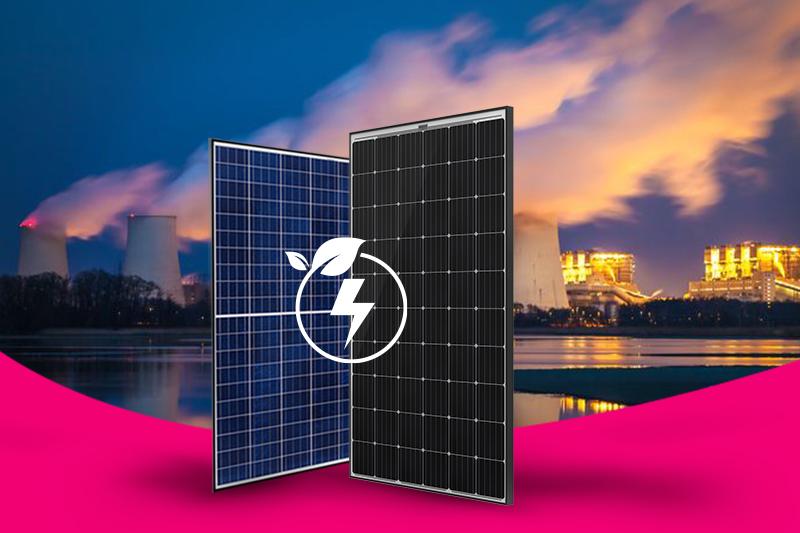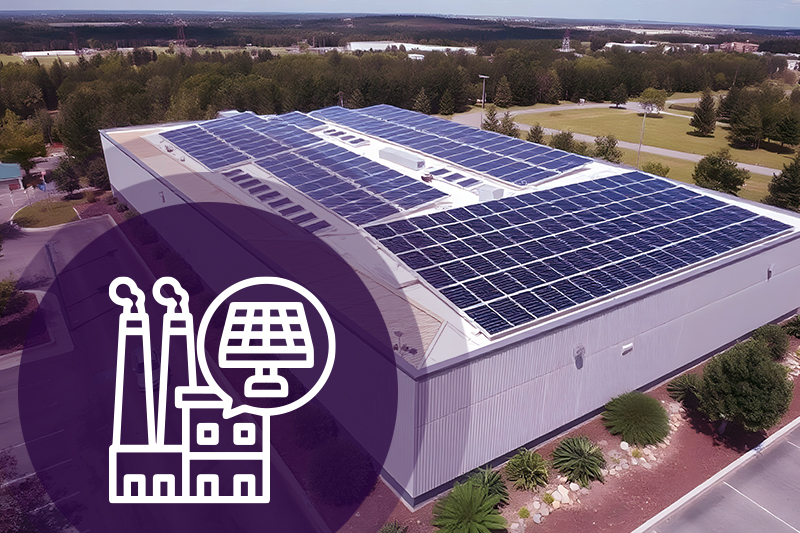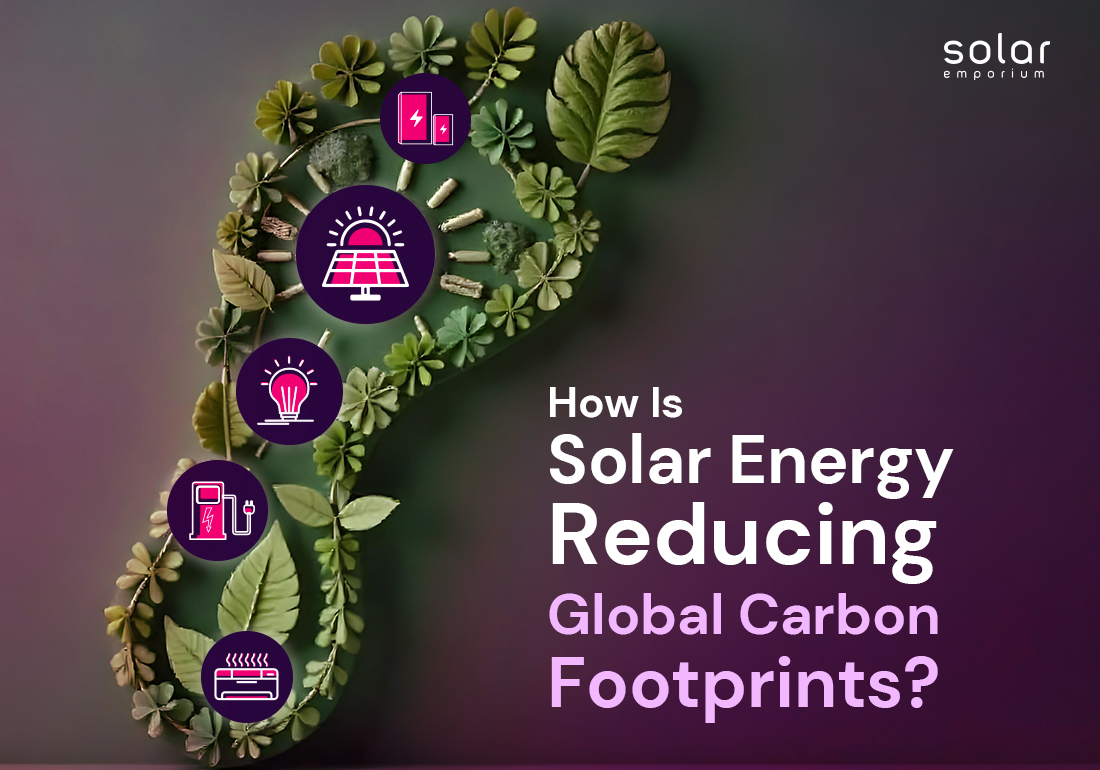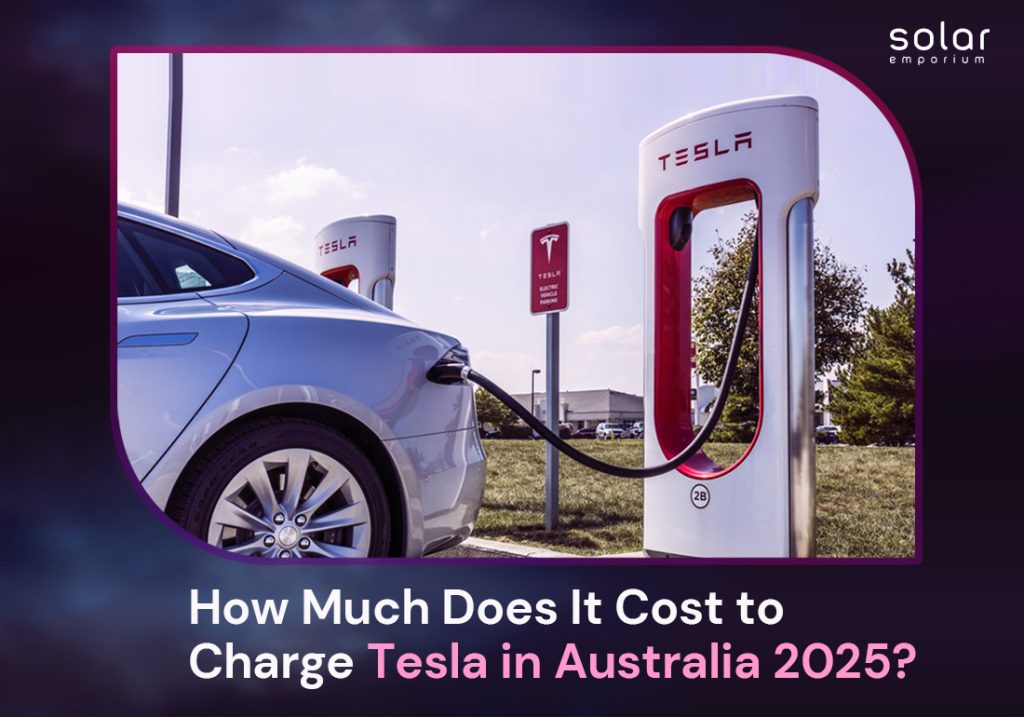We all seek a sustainable and eco-friendly source to meet our energy demands. But have you ever wondered how a simple ray of sunlight can help fight climate change?
Solar energy, harnessed from the sun’s limitless power, is quietly but powerfully reducing global carbon footprints.
As countries and businesses turn to cleaner, renewable energy sources, solar power is leading the way in slashing harmful carbon emissions. But how exactly does solar energy reduce our carbon footprint and make an impact? Can it truly replace fossil fuels in our daily lives?
Join us as we explore how solar technology is reshaping the planet’s future and discover the surprising ways it’s contributing to a greener, more sustainable world!
What Is Solar Energy? | Unlocking Its Power and Importance for a Sustainable Future
Solar energy is a renewable energy source harnessed by the sun’s radiation. When sunlight falls on a solar panel, the photovoltaic cells absorb the rays and convert them into electricity.
The best part is that, unlike fossil fuels, solar energy is abundant and does not produce harmful emissions during operation. We can use this renewable resource to power everything from homes and academic premises to large-scale industries or hospitals.
With the advancement of solar technology in recent times, the efficiency, cost-effectiveness, and scalability of solar energy systems have improved dramatically.
So, it’s no wonder that solar energy has become a key player in the global effort to reduce carbon footprints.
Ultimately, solar power is helping to transform how we think about and use energy by enabling more homes, businesses, and even entire nations to adopt this clean, sustainable energy solution.
Going Green: The Vital Link Between Solar Energy and Carbon Footprint Reduction
One of the primary reasons that encourage people to adopt solar energy is its ability to reduce the carbon footprint due to energy production.
So, isn’t it evident that they are interconnected? Let’s see more detail!
Burning fossil fuels, such as coal, oil, and natural gas, is a major contributor to greenhouse gas emissions. They trap heat in the atmosphere and drive global warming, destroying the earth’s natural balance.
On the flip side, installing a typical solar panel system can reduce carbon emissions by up to 100 tons over its 30-year lifespan. This is equivalent to planting more than 2,000 trees, highlighting the significant environmental benefits of solar energy.
Hence, replacing these carbon-intensive energy sources with clean, renewable solar power can significantly lower emissions and reduce the human impact on the environment.
Solar Energy in Australia: A Sustainable Leap Forward
Australia is naturally blessed with abundant sunlight, vast landscapes, and geological locations. Moreover, the country is also making remarkable strides in the solar sector.
But have you ever wondered how Australia harnesses its natural advantages to reduce emissions?
Well, with the rapidly advancing solar sector, the country is positioning itself as a global leader in renewable energy. The country’s vast, sun-drenched regions are perfect for harnessing solar power, and innovative solar farms are sprouting across the nation.
Over 3.4 million homes in Australia have already installed solar panels on their rooftop, and the number is escalating daily.
Their government is also investing heavily in solar projects and offering rebates and incentives on battery storage technologies to make them widely accessible and cost-effective.
With ambitious renewable energy goals of reaching net zero emission by 2050, government policies, and growing public support for clean energy, Australia is not just harnessing the power of the sun but also paving the way for a greener, carbon-neutral economy.

How Does Solar Energy Help Reduce Carbon Emissions?
Imagine replacing a coal power plant that emits hundreds of tons of CO2 every day with a solar farm that produces clean, renewable energy.
This sounds like a relief, doesn’t it?
Solar energy’s most significant impact on reducing carbon footprints is that it offers an alternative to fossil fuels.
So, let’s explore how solar energy can significantly minimize your carbon footprint:
Zero Carbon Emissions
The electricity generation sector, like fossil fuel-based power plants, is one of the largest sources of global carbon emissions. However, solar panels convert sunlight into electricity without releasing carbon dioxide or other harmful greenhouse gases.
By opting for solar energy, people and businesses are taking an active step in reducing their environmental impact.
This impact is even more significant when scaled up to a global level, with solar energy reducing millions of tons of CO2 emissions yearly.
Reduce Fossil Fuel Dependency
The more solar energy we use, the less we rely on fossil fuels. By reducing our dependence on burning fossil fuels and switching from coal to solar energy, we can effectively lower our carbon footprint.
When integrated into the grid, solar energy also helps offset the need for power plants that rely on fossil fuels, reducing the overall production of greenhouse gases.
Low Carbon Footprint in Manufacturing
Even though manufacturing solar panels requires energy, the overall carbon emitted during new panel production or recycling is much lower than that of fossil fuels.
After the initial installation, solar systems generate clean energy with minimal ongoing emissions, making them a net-positive contributor to reducing carbon footprints.
Solar-Powered EVs: A Cleaner Transportation System
Solar energy is playing an increasingly crucial part in transforming the transportation sector.
Recently, the rise of solar-powered electric vehicles (EVs) presents a unique opportunity to cut down on the carbon footprint of personal and commercial transportation.
Companies are already integrating solar panels directly into EVs, allowing cars to charge while driving, further reducing reliance on traditional power grids.
Several solar-powered charging stations for EVs have also been installed worldwide. These stations use solar panels to generate electricity and ensure that the energy used to charge EVs is entirely renewable.
Solar Energy for Industrial and Commercial Use
The transition to solar energy has extended beyond homes and vehicles. Currently, industries and businesses are adopting solar power into their energy mix to reduce their carbon emissions.
Businesses find renewable energy economically viable and attractive as solar promotes energy independence and can safeguard themselves from the fluctuating prices of fossil fuels.
Overall, factories, warehouses, office buildings, and shopping centers are all leveraging solar power to cut their reliance on fossil fuels, contributing to a more sustainable and cost-effective solution.
Solar Energy Promotes Sustainable Development
For many developing countries, access to electricity is still limited. Solar energy provides an opportunity to bring clean, affordable power to rural areas without extensive grid infrastructure.
These solar microgrids, powered by local solar farms or rooftop systems, offer a sustainable alternative to expensive and environmentally damaging diesel generators.
In short, developing nations can reduce their carbon footprint by investing in solar energy infrastructure while improving their populations’ energy access and economic opportunities.
This sustainable development model can help lift millions from energy poverty while tackling global carbon emissions.
Cutting Your Carbon Footprint with Solar Energy: How Much Can You Save?
Want to reduce their carbon footprint while simultaneously saving on energy costs? Simply go for solar!
Nowadays, homeowners and companies can generate their own energy and reduce their reliance on the grid while decreasing their overall energy consumption by installing solar panels.
Recent data shows that, on average, a residential solar system can offset 60-80% of a home’s annual electricity consumption.
Similarly, in terms of carbon emissions, a typical solar system can reduce carbon emissions by about 20,000 pounds (9,072 kg) annually. This is equivalent to the emissions produced by driving 1.6 cars for an entire year.
Even though opting for solar panels or renewable energy can be economically cost-effective, the exact savings depend on the location, maintenance, solar panel efficiency, and many other crucial factors.
The Global Rise of Solar Farms| A Game Changer for Renewable Energy

While rooftop solar installations are growing rapidly around the globe, large-scale solar farms, utility-scale solar, and community solar projects are also making significant strides in providing renewable energy.
These large solar projects expanded into hundreds of acres of land, and during peak hours, they can efficiently generate enough electricity to feed the national grid.
Additionally, incorporating solar in urban areas helps distribute uninterrupted power to communities or cities. It provides clean and reliable power to central infrastructure like traffic lights, public transportation, and street lighting, reducing fossil fuel dependency.
Installing solar panels on rooftops, solar farms, or other infrastructure in urban areas can significantly lower energy costs, reduce our carbon footprints, and promote energy independence.
The Role of Solar Energy in Mitigating Climate Change
Undoubtedly, solar energy is a natural blessing. It is a key solution for mitigating climate change and global warming. Solar panels’ ability to generate electricity without carbon emissions helps decrease the atmospheric carbon level.
According to the Intergovernmental Panel on Climate Change (IPCC), transitioning to renewable energy sources such as solar can limit global warming to 1.5°C above pre-industrial levels.
Solar energy has indirect benefits in addition to its direct emission reductions. For example, it can promote energy independence, reducing the need for fossil fuel imports.
This, in turn, can help stabilize national economies and reduce geopolitical tensions over energy resources.
Furthermore, the widespread adoption of solar energy encourages the development of other renewable technologies, creating a more sustainable, interconnected energy grid.
Personal Actions You Can Take to Reduce Your Carbon Footprint
When the talk is about reducing your carbon footprint, you can take many thoughtful actions just by staying home.
Any minor changes in your lifestyle can make a big difference. Remember, every action counts!
However, you can start by reducing your energy consumption at home. Initially, switch to energy-efficient appliances like LED lights and adopt more sustainable practices, such as supporting local and eco-friendly products.

Here are some more tips on how to reduce your carbon footprint quickly:
- Opt for renewable sources like solar to power your house when the electric price rises.
- Consider walking, public transport, or biking instead of driving cars that run on fossil fuels.
- You can also choose electric or hybrid vehicles to minimize emissions if necessary.
- Cut down on waste by recycling, composting, and reducing single-use plastics.
- Purchase local or organic foods to reduce the carbon emissions associated with transportation and farming.
So, by making mindful choices in everyday life, you can positively impact the environment while leading a more conscious, rewarding lifestyle, contributing to a more sustainable planet.
Keep your eyes on Solar Emporium for more content like this. You can also talk with our expert team for any solar-related queries regarding our solar products and packages.







